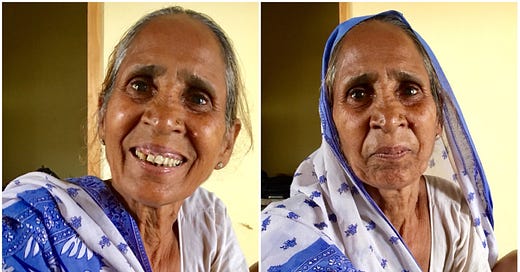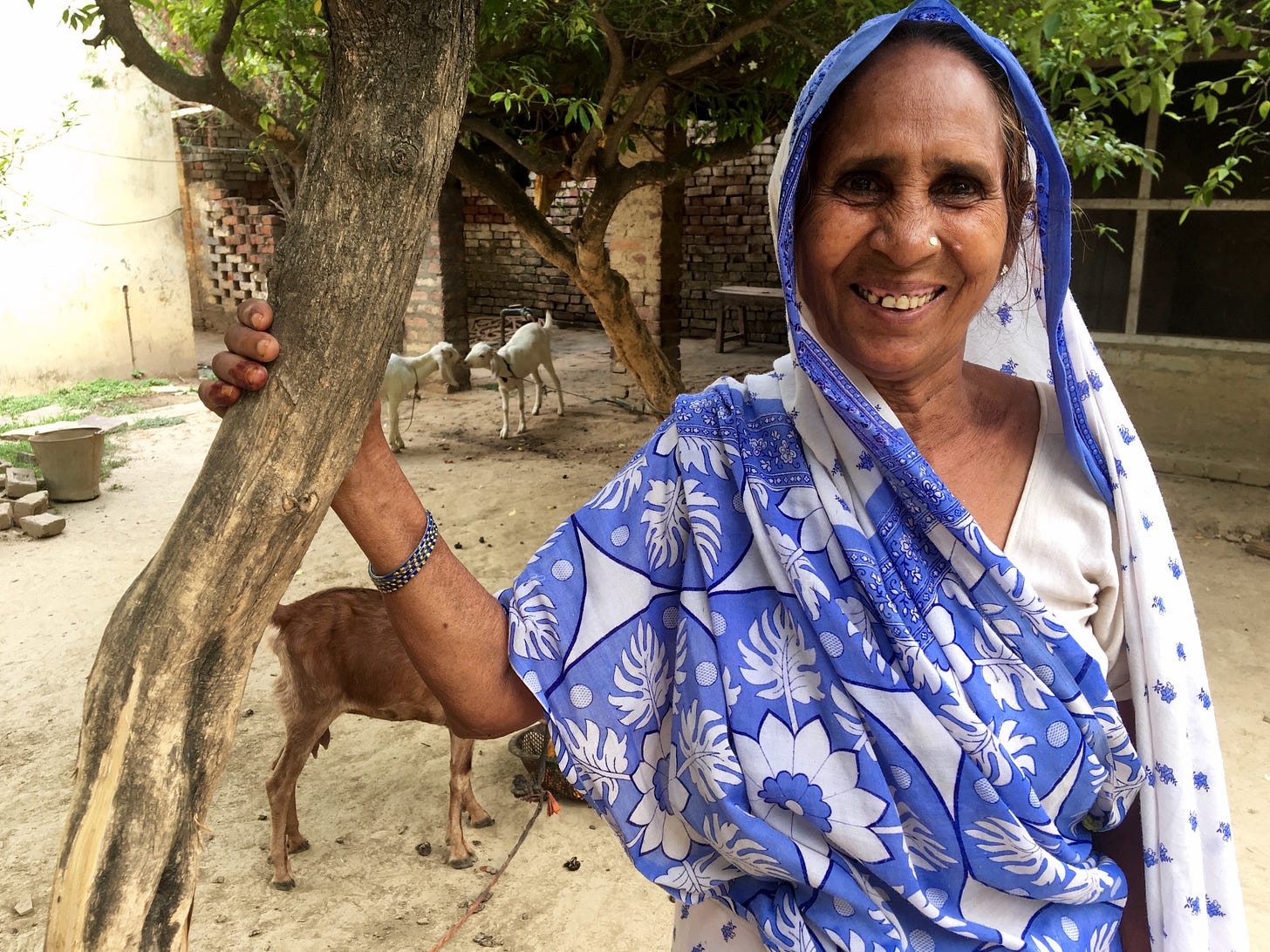Shareefun And The Burden Of Innocence
“What is your name, Islam Bo?" I asked her after 15 years of knowing her. Islam Bo means wife of Islam. "No one calls me by my name," she answered.
Many hours had passed before I noticed that my gold ring studded with diamonds was missing from my finger.
Oh hell, I muttered to myself. What have I done?
We were visiting our home in my husband’s village in east Uttar Pradesh during the month of Ramzan. When I realised that my ring was not on my finger, we were on our way to visit extended family in Ghazipur for iftar and dinner. It would be hours before we would reach home again.
I knew I had taken it off earlier in the morning and did have some idea of where I might find it if I was lucky.
When we returned home, it was midnight. I put our children to bed and went down to the kitchen to look inside the dustbin. I hoped to find the ring inside a crumpled page from a newspaper. But I didn’t recognize any paper in the mess of the dustbin. I didn’t tell anyone else because I didn’t want to deal with other people’s sense of alarm over a piece of jewellery that I had misplaced.
More importantly, I knew that it was best to keep this discreet because Islam Bo was involved. Islam Bo is a “naun" in our village—a woman who belongs to the caste of “nais”. Traditionally, the men from her community work as barbers. The women work in upper-class and -caste homes as domestic help in the kitchen and give massages to women and newborn babies. They are also messengers in the village, and make announcements about marriages and birth and death rituals in the village. They own no farming land and are poor.
I am a little bit in love with Islam Bo. She has the body language of a free child and is uninhibited in her expression, like a talented mime artist. This is a rare and refreshing trait in our traditional family home, where being proper and reticent are top virtues.
Islam Bo and I were the last two people to have seen my diamond ring. She had come to my room to give me an oil massage. We had spread a newspaper on the bed, to protect the bedcover. At some point when she was pressing my palms, I had removed my ring and kept it on the bed.
“Is it gold?" Islam Bo had asked.
“Yes," I had said. “And these are diamonds."
She had said something in Bhojpuri in a scolding tone. “Be careful, don’t keep it so casually."
I had forgotten to wear it again later and when I did not find it on my bed at night, I wondered if we had accidentally wrapped it in the newspaper and thrown it away.
I waited for Islam Bo to return the next day. She walked in carrying a fresh, organic paste of barley flour mixed with mustard oil and gestured to me from a distance that it was for me. I knew instantly that this woman was on my side.
In many ways, life in our village home is a window to the complex and intricate web of oppression and interdependencies that make up Indian society. I had known that if the news of my missing ring became public, it would spread quickly all the way to Islam Bo’s home and she would stand accused of theft.
As soon as I confided in her that I had lost my ring, we began to trace the route of the crumpled newspaper from one dustbin to another. She overturned the garbage on to the earth and sifted through it with bare hands. We were in the open under a harsh sun. She was fasting for Ramzan. I got tired and lost hope and came back to my room. Twenty minutes later, Tarannum, who also works in the kitchen, came running to me with the ring. The ring my mother had gifted to me when my brother had got married. The ring, that despite my reassurances, had become Islam Bo’s worst nightmare.
When I went out to thank and congratulate Islam Bo, she had tears in her eyes. I hugged her, held her hand and brought her to my room. She was overcome with emotion. I knew why. As a poor woman born in a low caste, she had repeatedly borne the burden of being suspected as guilty till she could produce the proof of her innocence. This is how our society is structured. This is how all of us participate in perpetuating inequalities.
Alone with me, Islam Bo began to tell me stories. I listened. She mentioned a guest from Lucknow who had misplaced her earrings and accused her of stealing them.
“People in this home who have known me for years said to me, ‘Bura mat mano’ (don’t feel bad). I said, if you say bad things to me, you can be sure that I will feel bad about it."
“What is your name, Islam Bo?" I asked her after 15 years of knowing her. She is called Islam Bo because she is the wife of a man called Islam.
“Shareefun," she said. “But people have distorted it and everyone who uses the name says Shaleefun. Even my voter-ID card has my name as Shaleefun."
“Why won’t they say your name as it is?"
“We are poor," she said. “People get offended if we have good names. My daughters’ names are Shaheena and Ruhi. But everyone calls them Mohfa and Tohfa. When Shaheena was born, your uncle was not even married, but when he gave his daughter the same name, we stopped calling our child by that name."
As I do when I am unable to find words to express what I am feeling, I picked up my phone and took photographs of her. Shareefun has the widest grin in the world. I showed her the photograph I had taken.
“Delete it," she said to me, looking cross. “What is this face full of teeth showing? Take a photo without my teeth."
When she rearranged her facial features for a proper photograph, Shareefun could not keep the sadness out of her eyes.
“Why so sad?" I said to her. She smiled for me. And pressed the pressure points on my palms and feet till I put my phone away and put my head back on the pillow.
“When you pray," I said to my husband later, “ask for an old age in which we have as much healing power in our hands as Islam Bo has in hers even on days when she is keeping her roza."
“I don’t need a lot of food," Shareefun had said to me. “Allah gives me strength. When I am tired, my granddaughter gives me a massage. I get okay again."






“People get offended when we have good names” so true! Thank you for writing this